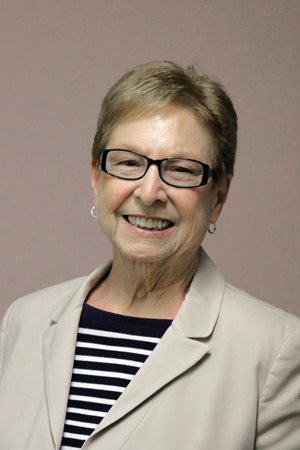 TOPEKA—Anne McDonald is retiring as executive director of the Kansas Lawyers Assistance Program, created by the Kansas Supreme Court to help lawyers seek treatment for physical or mental illness, substance abuse, or emotional distress.
TOPEKA—Anne McDonald is retiring as executive director of the Kansas Lawyers Assistance Program, created by the Kansas Supreme Court to help lawyers seek treatment for physical or mental illness, substance abuse, or emotional distress.
McDonald was named interim director of KALAP in 2009, then hired as its executive director. Her affiliation with the program, however, began in 2001 as a founding member of its board.
"A privilege, a pleasure, and an honor sum up my feelings about the opportunity to serve as the KALAP executive director these last nine years," she said.
McDonald said the program has grown considerably in that time, but she credits the Supreme Court, her board and staff, state and local bar associations, and lawyers who have taken advantage of KALAP's services.
"I have stressed on more than one occasion that the real accolades should go to the lawyers who do the hard work of addressing their condition, whatever it may be, and emerging a better lawyer and a happier person," she said. "When I said as much to a former KALAP client recently, she responded, 'Yes, but KALAP provides a safe space in which to do that.' "
Louis Clothier, a longtime attorney from Leavenworth, has been hired to succeed McDonald.
"I have no doubt that Louis Clothier will keep providing that safe space and service to Kansas lawyers as he guides KALAP to a new level of excellence," McDonald said.
KALAP works in the background to help lawyers, whose profession is among the most stressful, McDonald said. She cites statistics that show attorneys are two to three times more likely to exhibit anxiety, suffer from depression, or become addicted to alcohol or drugs than the general population.
Yet they also see greater barriers to treatment, such as negative publicity and the fear of losing their license to practice law, she said.
KALAP's work is 100 percent confidential and 100 percent voluntary, McDonald said.
KALAP's initial focus was helping attorneys deal with alcohol abuse, but now it works on any problem that could affect an attorney's practice. It even begins in law school, where students are informed of KALAP's work and urged to seek help if needed.
Lawyers can contact KALAP directly, but they might be pointed in that direction by a colleague, a judge, the Supreme Court's attorney admission office, or its Office of Disciplinary Administration.
KALAP can provide:
-
peer counseling by a volunteer attorney.
-
referral to a treatment center or medical professional.
-
help through its Resiliency Support Group, which offers weekly sessions run by a psychologist who also is a lawyer. Sessions are offered in Overland Park, Topeka, and Lawrence, with the Lawrence meetings also available via Skype.
McDonald said KALAP stresses education and prevention but directs an attorney to rehabilitation and remediation if help is needed.
Kansas Supreme Court Justice Eric Rosen, who is the court's liaison to KALAP, said McDonald has worked hard to broaden the scope of the organization.
"Since taking over as our executive director in 2009, Anne's vision has led to an expansion of KALAP's services. We have broadened our understanding of 'assistance' to include interventions designed to address the multitude of needs and stressors encountered by lawyers and law students," he said.
"Through Anne's tireless and dedicated leadership, KALAP has become nationally recognized for its forward and progressive programs. Perhaps even more importantly, Anne's work has been a beacon of hope—she's never backed away from meeting head-on the needs of those in crisis. Her compassion and support provides the guiding light to services for anyone in need," Justice Rosen added.
Despite the progress made during her time at KALAP, McDonald said there is more work to be done.
"There is still much to do to transform portions of our legal profession culture into a healthier one where we actively seek wellness and well-being and are not afraid or ashamed to seek help should we need it," she said.
McDonald did not attend law school until she was in her 30s. She said she was inspired to do so after working as executive secretary to Kansas City, Kan., Mayor Jack Reardon.
She graduated in 1961 from Bishop Ward High School in Kansas City, Kan., and joined the Sisters of Charity of Leavenworth. She studied at St. Mary College, which the sisters sponsor, and taught elementary school for four years. After leaving the religious community, McDonald worked as a payroll clerk before being hired by Reardon.
She earned a law degree from the University of Kansas in 1982, then practiced law for three years before being hired as a court trustee for the 29th Judicial District in Kansas City, Kan. She retired from that job in 2006.
After becoming a lawyer, McDonald was active in the Kansas Bar Association's Committee on Impaired Lawyers, which led to her appointment to the KALAP board.
McDonald lives in Kansas City, Kan., with her husband, Robert Wilshire. She has two stepsons.